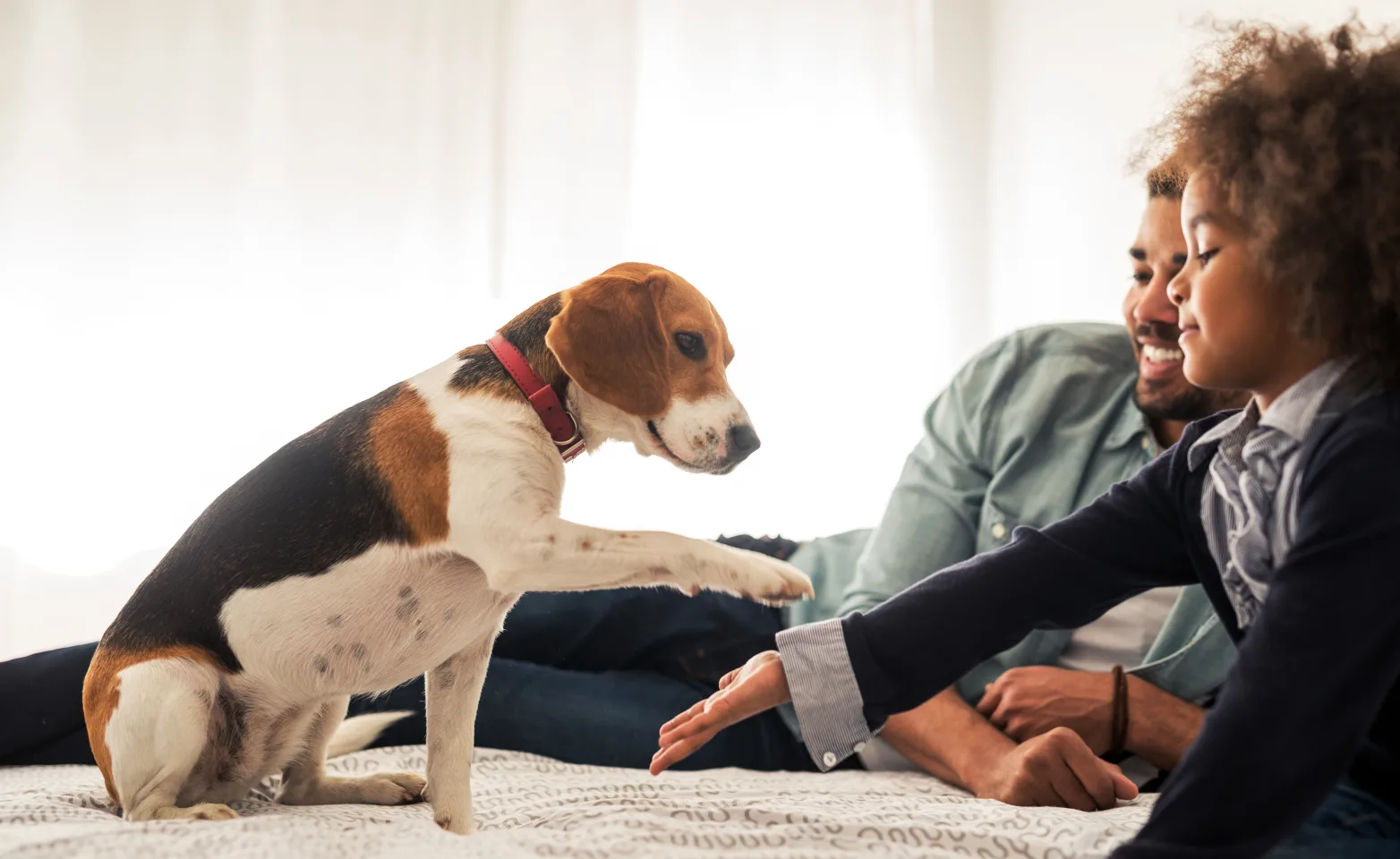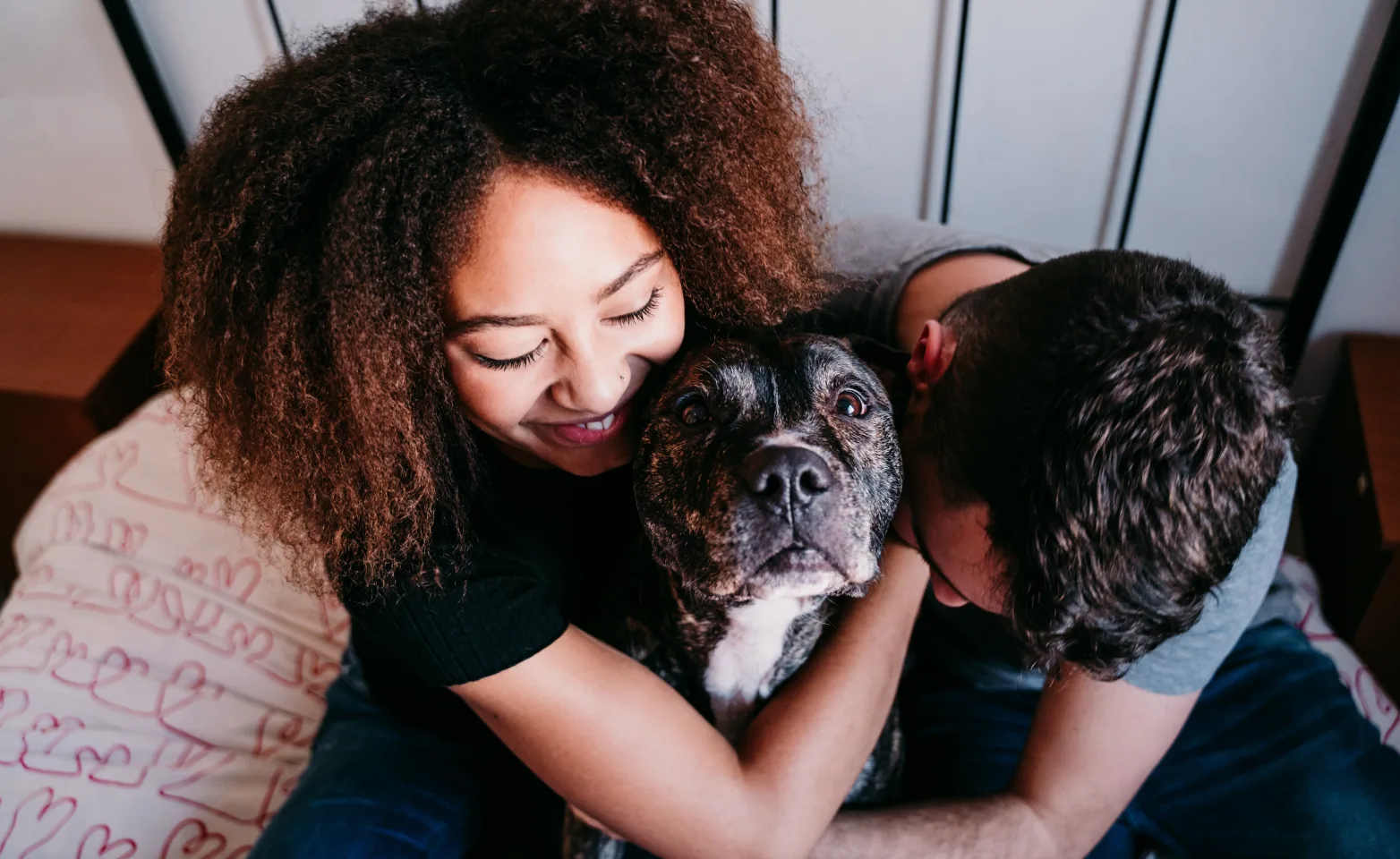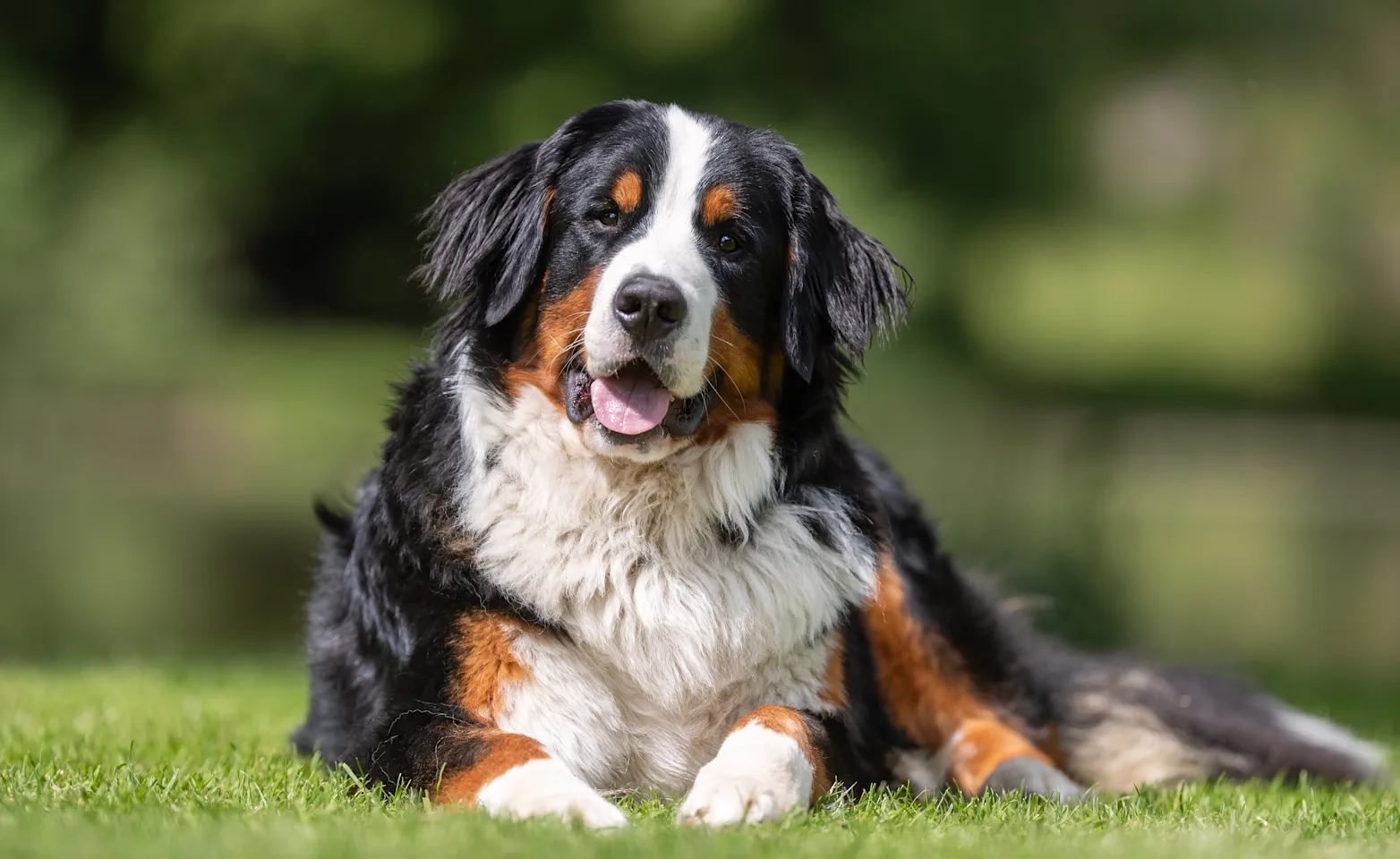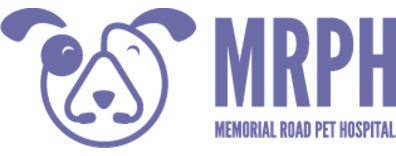Memorial Road Pet Hospital

HOUSETRAINING YOUR PUPPY

Establish a routine
Like babies, puppies do best on a regular schedule. The schedule teaches them that there are times to eat, times to play and times to do their business. Generally speaking, a puppy can control their bladder one hour for every month of age. So if your puppy is two months old, they can hold it for about two hours. Don't go longer than this between bathroom breaks or they’re guaranteed to have an accident.
Take your puppy outside frequently—at least every two hours—and immediately after they wake up, during and after playing, and after eating or drinking.
Pick a bathroom spot outside, and always take your puppy (on a leash) to that spot. While your puppy is relieving themselves, use a specific word or phrase that you can eventually use before they go to remind them what to do. Take them out for a longer walk or some playtime only after they have eliminated
Reward your puppy every time they eliminate outdoors. Praise or give treats—but remember to do so immediately after they’ve finished, not after they come back inside. This step is vital, because rewarding your dog for going outdoors is the only way to teach what's expected of them. Before rewarding, be sure they’re finished. Puppies are easily distracted and if you praise too soon, they may forget to finish until they’re back in the house.
Put your puppy on a regular feeding schedule. What goes into a puppy on a schedule comes out of a puppy on a schedule. Depending on their age, puppies usually need to be fed three or four times a day. Feeding your puppy at the same times each day will make it more likely that they'll eliminate at consistent times as well, making housetraining easier for both of you.
Pick up your puppy's water dish about two and a half hours before bedtime to reduce the likelihood that they'll need to relieve themselves during the night. Most puppies can sleep for approximately seven hours without needing a bathroom break. If your puppy does wake you up in the night, don't make a big deal of it; otherwise they will think it is time to play and won't want to go back to sleep. Turn on as few lights as possible, don't talk to or play with your puppy, take them out and then return them to bed.

Supervise your puppy
Don't give your puppy an opportunity to soil in the house; keep an eye on them whenever they’re indoors.
Watch for signs that your puppy needs to go out. Some signs are obvious, such as barking or scratching at the door, squatting, restlessness, sniffing around, or circling. When you see these signs, immediately grab the leash and take them outside to their bathroom spot. If they eliminate, praise them, and reward them with a treat.
Keep your puppy on leash in the yard. During the housetraining process, your yard should be treated like any other room in your house. Give your puppy some freedom in the house and yard only after they become reliably housetrained.
When you can't supervise, confine. When you're unable to watch your puppy at all times, restrict them to an area small enough that they won't want to eliminate there.
The space should be just big enough to comfortably stand, lie down and turn around. You can use a portion of a bathroom or laundry room blocked off with baby gates. Or you may want to crate train your puppy. (Be sure to learn how to use a crate humanely as a method of confinement.) If your puppy has spent several hours in confinement, you'll need to take them directly to their bathroom spot as soon as you return.

Mistakes Happen
Expect your puppy to have a few accidents in the house—it's a normal part of housetraining. Here's what to do when that happens:
Interrupt your puppy when you catch them in the act. Make a startling noise (be careful not to scare them) or say "OUTSIDE!" and immediately take them to their bathroom spot. Praise your pup and give a treat if they finish there.
Don't punish your puppy for eliminating in the house. If you find a soiled area, it's too late to administer a correction. Just clean it up. Rubbing your puppy's nose in it, taking them to the spot and scolding them or any other punishment will only make them afraid of you or afraid to eliminate in your presence. Punishment will often do more harm than good.
Clean the soiled area thoroughly. Puppies are highly motivated to continue soiling in areas that smell like urine or feces. It's extremely important that you use these supervision and confinement procedures to minimize the number of accidents. If you allow your puppy to eliminate frequently in the house, they'll get confused about where they’re supposed to go, which will prolong the housetraining process.
